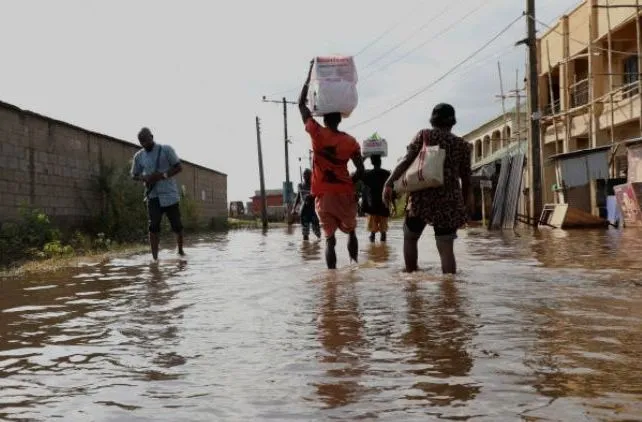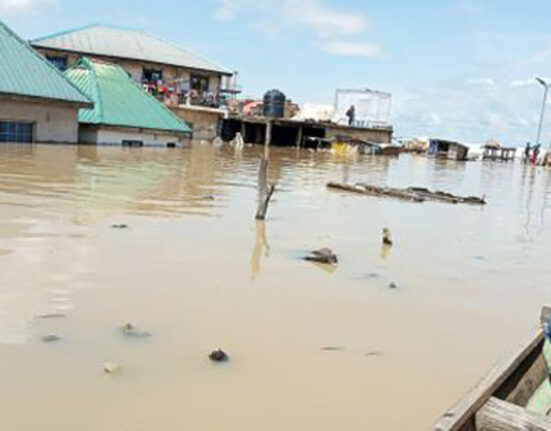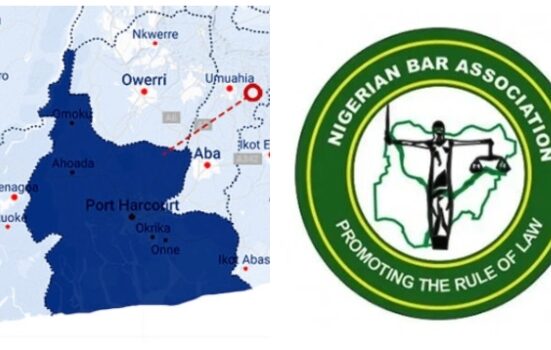By Paul Chimodo
The flood came quietly at first, with slow rain that drizzled through the night. By morning, water was pouring into homes in Nkpolu, soaking floors, mattresses, and memories. It wasn’t the first time for many residents—and it likely won’t be the last.
“It started entering from the kitchen,” said Chinyere Okeke, a mother of three. “By the time we woke up, the whole house was flooded. My children stood on the chairs all morning.”
No life was lost this time, but in the eyes of many residents, the damage still cuts deep economically, emotionally, and physically. Shops are closed, roads impassable, homes soaked, and daily life brought to a halt. But even more painful, they say, is the silence the slow, late response of a system that should have known better.
“We didn’t hear anything until after it started,” Chinyere added. “Now they are telling us to move. Move to where?”
As Port Harcourt flooded again in July, what shocked no one was the rainfall. What did was how unprepared the state remained again.
The Rivers State Government and Nigeria’s National Emergency Management Agency (NEMA) issued their first public alerts only after the rains began. There were no coordinated evacuations, no public shelters opened, no sandbags distributed just a vague advisory asking residents in low-lying areas to “relocate.”
But to people already bailing water out of their homes, those announcements meant little.
“The flood warned us before they did,” said Preye, a mechanic in the area. “And that flood doesn’t knock, it just enters.”
Port Harcourt and Rivers State at large has no dedicated state emergency agency, no real-time warning systems, and no citywide flood response strategy. Each year, residents brace themselves with buckets, raised furniture, and prayer—because that’s all they have.
In parts of the city, where roads are narrow and drains are either blocked or nonexistent, the water had nowhere to go. Residents say the city’s drainage systems have failed completely.
“You clear your own gutter, or you drown,” said one shop owner. “The government is not coming.”
The makeshift solutions are telling. Some people build trenches behind their homes to divert the water. Others elevate their furniture using blocks. Some seal their doors with nylon and duct tape and hope the rain doesn’t fall too long.
When the flood ends, what follows is always the same: damage, cleanup, silence. Then, the cycle begins again.
Experts have long warned that Port Harcourt’s urban sprawl, poorly regulated construction, and blocked waterways are worsening the floods. Climate change has made it worse, but the real failure, many believe, is human.
“The problem isn’t just nature,” said a university lecturer in environmental science. “It’s our refusal to prepare.”
There are no enforced building codes, no widespread desilting of drains, and no serious investment in long-term solutions. When it rains, people suffer. When it stops, the conversation ends until the next downpour.
And as the population grows, so does the risk. Flooding is no longer an occasional event, it’s a part of life.
Despite everything, people adapt. Traders still show up to sell, rolling up their trousers. Children still go to school, their bags held above the water. Keke drivers push their tricycles through the flooded roads like canoes. Life continues—not because the city helps them, but because they refuse to stop living.
But survival is not the same as safety. It’s not the same as planning. It’s not the same as dignity.
“We can’t keep living like this,” Chinyere said. “Every rain should not be a disaster.”
As the floods slowly drain, residents begin the familiar cleanup; drying clothes, sweeping mud, replacing what was lost. But many say they’re tired. Not just of the water, but of the waiting. Waiting for change, waiting for help, waiting for leaders who will act before the damage is done.
Port Harcourt is not the only city facing climate challenges, but it may be one of the most neglected. Its people have become their own emergency responders, their own planners, their own hope. But they shouldn’t have to be.
If anything will change, it won’t be the rain. It will have to be the response. Until then, the floodwaters will keep rising and Port Harcourt will keep paying the price.









Leave feedback about this